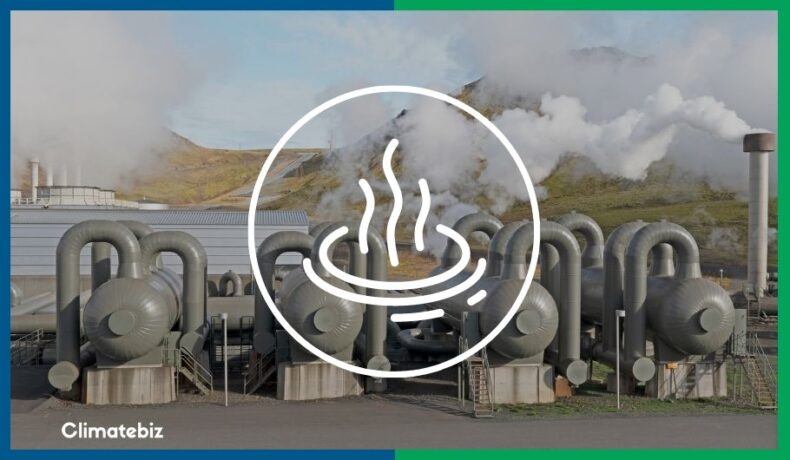In recent years, it’s become clear that non-renewable energy resources are no longer a suitable option for a sustainable planet. So, the trend towards renewables such as geothermal energy has grown exponentially. Gaining insight into the advantages of geothermal energy is important for making decisions in your home or business as well as understanding the concept as a whole!
Geothermal energy is quite a new player on the field in comparison to conventional energy sources, such as the burning of fossil fuels and coal plants.
In the case of geothermal energy, the earth’s natural ground temperatures, water temperatures, and other thermal-related sources (for example, springs) are utilized.
This groundbreaking (yes, literally!) technology is used for different scales of electricity generation, heat, and cooling.
Sounds promising, so let’s find out more about all the advantages of using geothermal energy.
Table of Contents
9 Advantages Of Geothermal Energy
Geothermal energy technologies are becoming more and more recognized as green and renewable energy resources. Especially as an alternative to fossil fuels and other conventional energy practices!
In fact, it’s anticipated that the installation of these systems will take off significantly across the globe in years to come.

Source: UNM Newsroom
Rapid growth in the use of geothermal energy is such a big advantage, as it really makes our efforts towards achieving climate change goals impactful! With this technology, we’re seeing the potential for better sustainability over longer periods of time.
Pretty great news when we think of sustainability for the generations to come! After all, clean energy is what we’re aiming for!
Lower Greenhouse Gas Emissions
It’s no secret that greenhouse gases, especially carbon dioxide (CO2), pop up in the majority of climate change discussions and articles. You could say that CO2 is quite the trouble maker!
For heating and cooling purposes, geothermal energy is much greener when it comes to carbon dioxide emissions!
A worldwide overview of existing installed geothermal technologies provides a pretty strong case of this. In fact, it’s estimated that around seven million tons of carbon dioxide emissions are saved in heating, and almost double that in cooling!
This is definitely one of the most significant advantages of geothermal energy!
Heating And Cooling Technologies
Looking to go hot and cold? The good news is, geothermal energy is capable of doing both!
One of the neat advantages of geothermal energy is that you can set up both heating and cooling systems. These various systems exchange heat between ground and air, water and air, or they can include direct interactions with equipment.
So rest assured, there is a technology best suited for your specific heating and cooling needs!

Source: Department for the Economy
Lower Environmental Impacts
Environmental impacts are a disadvantage of geothermal energy, as with any technology — we do need to remain realistic here.
However, in comparison to non-renewable resources, geothermal energy has a much lesser impact on the surrounding environment in terms of scale.
To provide a better picture of this on a large scale, let’s look at the scale of some environmental impacts when comparing geothermal energy and conventional coal-fired energy in power plants below:
| Geothermal Energy | Coal-fired Energy |
| 0-49,8 kg/MWh of Carbon Dioxide produced | 994 kg/MWh of Carbon Dioxide produced |
| 1260-7460 m2/MW of land use | 40 000 m2/MW of land use |
The results sure do speak for themselves here, don’t you think?
Related Reading: Off-Grid heating methods that require no electricity
Small And Large-Scale Application
One of the great benefits of geothermal energy is the ability to go big with a system or stay small
Advantages Of Geothermal Energy In Household, Building And Office Systems
In households, buildings, and offices, geothermal systems have a few beneficial uses including:
- Heating of a space
- Cooling of a space
- Heating up pools
- Providing heat for hot water
The advantages of these uses are that they don’t require grid electricity, they are energy-saving, and they reduce overall energy costs!
Advantages Of Geothermal Energy In Industrial Operations
The benefits of geothermal energy in bigger scale systems are energy-saving, cost-saving, greener industrial processes including:
- Chemical processes, bleaching and sterilization
- Agricultural heating processes
- Distilling and concentrating, drying and kilning
- High pressure processes
Higher Efficiency Compared To Conventional Systems
Energy efficiency is one of the key factors that we’re looking for in renewable energy systems!
But, do geothermal energy technologies even offer this advantage?
The answer is yes! Better yet, one of the biggest geothermal heat systems found in the USA proves just that!
An installation at the Galt House in Kentucky, USA, heats and cools over 600 hotel rooms! Heating and cooling energy here supplies offices and apartments too. The best part is that results have shown a whopping energy efficiency of 53% more in comparison to similar conventional sources.
That’s a massive saving, wouldn’t you say!
Low Maintenance And Operating Costs
Setting up a new system will always require capital investment, especially since you need to buy the actual system and have it installed by qualified professionals.
Sigh, we know. Paying up costs isn’t our favorite thing to do.
However, it’s really important to weigh up what costs are in the short-term and the long-term. Paying up now might just be worth it in the end.
Thankfully, low operating cost is one of the advantages of geothermal energy! This means that you can expect a system that is less expensive to operate and maintain in the long run (depending on your environment, of course). Not to mention the additional money you’ll save by using renewable energy.
Score!
Related Reading: How does Geothermal energy work?
Various Household Systems To Choose From
Heating and cooling wise —there are various types of household geothermal systems that can you can consider for your home.
The two main types of technology used for heating or cooling in households are:
- Ground source heat pumps: a system which exchanges heat between the ground and the ambient air for heating and cooling
- Direct use systems: using hot underground water directly for heating
This is highly dependent on where you live, as some regions have technological limitations. For example, ground source heat pumps can be used anywhere in the US, but direct use is limited to certain regions.
The good news is, these main types of technology have their own specific types of systems. In other words, each technology provides you with numerous choices of the type of system you want or need!
Just as a quick example, ground source heat pumps consist of closed-loop systems, open-loop systems, and even hybrid systems.
The bottom line here? You have multiple options!
Better Stability And Reliability
When it comes to renewable energy and green technologies, stability can be a problem. Wind energy relies on consistent wind. Solar energy relies on a consistent amount of sunshine.
Thankfully, geothermal energy (especially in the case of ground heating systems) is quite stable in comparison!
Ground temperatures are a lot more stable, as they’re not directly exposed and quickly affected by fluctuating elements. In other words, what happens above the ground affects the below-ground temperatures a lot slower than renewable energy directly dependent on the season or weather.
This makes for a great advantage of geothermal technology, especially in the winter months — the last thing you need is to shudder at the thought of a cold shower!
Integration With Other Energy Technologies
Integrating geothermal technology in the form of ground heat pumps with conventional electricity grids has shown fantastic results, highlighting one of the many advantages of geothermal energy!
A ground source heat pump system was installed to pre-heat a building space in Portugal before using grid electricity. Low and behold, the energy consumption went down by a whopping 34%!
Let’s think a bit bigger though:
Wouldn’t it be an amazing achievement to have net-zero emissions? Well believe it or not, with geothermal technology the idea of achieving this goal may not be that far out of reach!
Research has looked at the integration of geothermal technologies with renewable energy such as solar. Although not quite at the level of being completely self-sufficient, the results of combining a ground heat system with a PV system are promising.
Who knows what the future may hold!
Final Thoughts
Geothermal energy is quite diverse in terms of uses and scale. It can be applied from household heating right up to running industrial processes!
All this information is a lot to take in, but what remains clear throughout are the numerous advantages of geothermal energy.
The fact of the matter is that geothermal energy is greener for the environment, is energy-efficient, costs less over time, and provides a range of system choices for your specific needs!
Whether you’re looking to heat your pool or thinking of efficiently running processes in your business, geothermal energy proves to be a promising way to go!

